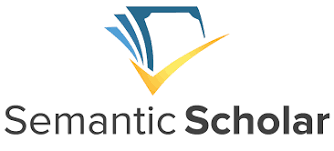Community Empowerment in Waste Management through Waste Bank Program in Tabanan Regency
DOI:
https://doi.org/10.47616/jamrsss.v3i4.322Keywords:
Community Empowerment, Waste Management, Waste BankAbstract
This study is intended to collect data and then analyze it to obtain results that can provide an overview of community empowerment in waste management through the waste bank program, describe what factors are inhibiting and supporting factors, as well as the efforts made in overcoming these factors. The theoretical basis used in this research is the theory of community empowerment by Mardikanto & Soebito (2018). The four aspects in this theory include human development, business development, environmental development, and institutional development. The research design used in this study is a qualitative research using descriptive methods. Data collection techniques used three ways, namely, interviews, observation, and documentation. The data that has been collected is analyzed starting from data reduction, data presentation, and drawing conclusions. This research was conducted in Tabanan Regency. From the results of this study, it can be concluded that community empowerment in waste management through waste banks in Tabanan Regency has been implemented. However, there are still obstacles in implementing the program. Therefore, researchers provide suggestions to further intensify education to the community, continue to build good relations with vendors, and continue to pay attention to the condition of waste management facilities and infrastructure.
Downloads
References
Asteria, D. (2016). Bank Sampah Sebagai Alternatif Strategi Pengelolaan Sampah Berbasis Masyarakat di Tasikmalaya. Jurnal Manusia Dan Lingkungan, 23(1): 137.
Chavis, D. M., & Wandersman, A. (2002). Sense of community in the urban environment: A catalyst for participation and community development. In A quarter century of community psychology (pp. 265-292). Springer, Boston, MA.
Hati, G., & Adi, I. R. (2014). Kajian Permasalahan Dan Potensi Perilaku Ibu Dalam Pemberian Makanan Bagi Anak Dalam Kaitannya Pada Kualitas Hidup Anak-Anak Yang Tidak Berkecukupan Gizi Di Keluarga Miskin Perkotaan. Jurnal Ilmu Kesejahteraan Sosial, 13(1), 56-73.
Karl, T. L. (2007). Oil-led development: social, political, and economic consequences. Encyclopedia of energy, 4(8), 661-672.
Kemp, D. (2010). Mining and community development: problems and possibilities of local-level practice. Community Development Journal, 45(2), 198-218.
Mardikanto, T, Soebiato, P. (2018). Pemberdayaan Masyarakat Dalam Perspektif Kebijakan Publik. Bandung: Alfabeta
Nain, U. (2017). Relasi Pemerintah Desa Dan Supradesa Dalam Perencanaan Dan Penganggaran Desa. Yogyakarta: Pustaka Pelajar
Nugraha, A, Sutjahjo, S, Amin, A. (2018). Persepsi dan Partisipasi Masyarakat Terhadap Pengelolaan Sampah Rumah Tangga Melalui Bank Sampah di Jakarta Selatan”, Vol. 8, No.1, April 2018: 8.
Ortiz, D., & Huber-Heim, K. (2017). From information to empowerment: Teaching sustainable business development by enabling an experiential and participatory problem-solving process in the classroom. The international journal of management education, 15(2), 318-331.
Sugiyono. (2013). Metode Penelitian Kuantitatif, Kualitatif, dan R&D. Bandung: Alfabeta.
Downloads
Published
How to Cite
Issue
Section
License
Copyright (c) 2022 Journal of Asian Multicultural Research for Social Sciences Study

This work is licensed under a Creative Commons Attribution-ShareAlike 4.0 International License.































